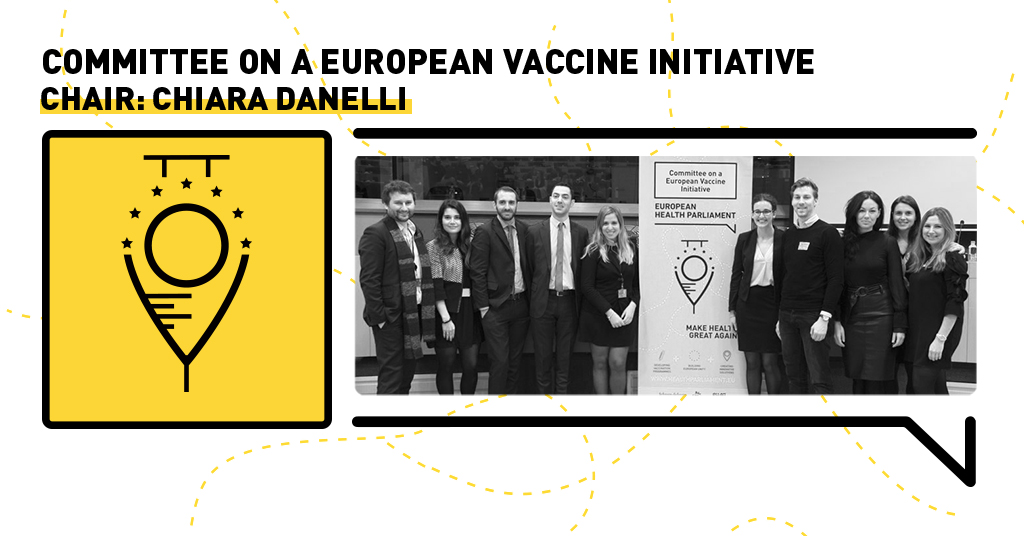NEWS > SPOTLIGHTS

January, 21, 2018
Soon after the 1st plenary session back in October, the Vaccines Committee dived into the complex topic of vaccines and commenced with research that later on provided us with much deeper insight into the vaccines policies set in place, both on EU and national levels.
First step towards the realization of our Committee’s objective, which is to provide policy recommendations that aim to promote and increase rates of the uptake of vaccines across the EU, was to map key players on EU vaccine scene. Approaching stakeholders proved to be a smart undertaking as the collaboration with them helped navigating committee’s efforts in the right direction and prompted useful discussions. European Commission, The European Centre for Disease Prevention and Control (ECDC), European Medicines Agency, European Public Health Alliance, Vaccines Europe, European Patients’ Forum, industry representatives and many others, they all make part of the list we have devised in order to get as many information on vaccines policies as possible.
Deductively, afterwards, set of three topics were identified as the ones that currently are in need of more attention when working on improving vaccination policies across Europe. Involving all our findings, including the focus of European Commission’s Joint Action on Vaccination, we have narrowed our research to 1) tackling vaccine hesitancy and improving confidence in vaccination, 2) immunization information systems and 3) establishing predictable vaccine supply and demand and setting up a R&D framework to develop vaccines for the future.
One might be struck by the fact that, although Europe is at the heart of global vaccine research and production (more than 80% of the vaccines are produced in and exported from Europe), European region has the highest degree of vaccine hesitancy in the world, according to the World Health Organization. This statistics are also due to rising of vaccine hesitancy that we have all been witnessing. First appearance of opposition to vaccination dates way back in the history, but what has additionally casted a shadow on something that is considered to be humanity’s most incredible accomplishment in public health, are speculations that vaccines cause autism. Notwithstanding this connectedness has no valid scientific foundation, moreover, the paper where it was introduced was fully retracted in 2010, the surge of its consequences persists. Some might say that Europe is facing a crisis when it comes to awareness on vaccines efficacy and its impact as immunization tool, which is why Vaccines Committee’s attention to strengthening public awareness on vaccines across EU might seem appropriate.
Divided in subcommittees our group will further do a more detailed research that will strengthen our recommendations for improving already existing, or implementing new immunization information systems. Homogenous guidelines and recommendations that might improve collection of data and enhance the exchange of information could lead to even more cost-effective health systems. We strongly believe that all stakeholders, including Member countries, are committed to work on finding new solutions on how to protect already proved usefulness of vaccines for health systems.
Keeping the citizens healthy is an all-involving system whose participants play their individual roles trying to reach common goals. Having said that, we would like to emphasize the importance of collaboration between public health institutions, countries’ ministries, decision makers and manufacturers in trying to establish predictable systems for vaccines forecasting, which might include evenly spread supply and demand, crisis management plans to anticipate and reduce risks during manufacturing processes and setting up a R&D framework.
In the months to come our Committee will continue to work on preparing policy recommendations around these three topics, whose implementation could further ameliorate the health of EU citizens.
#MakeHealthGreatAgain